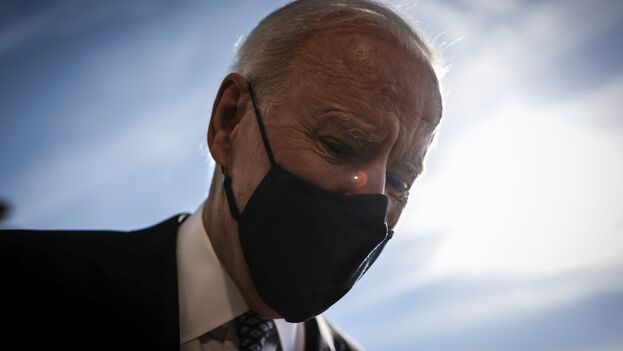
![]() 14ymedio, Reinaldo Escobar, Desde Aqui, Havana, 22 March 2021 — Some friends often ask me “And what will you ask of Biden?”
14ymedio, Reinaldo Escobar, Desde Aqui, Havana, 22 March 2021 — Some friends often ask me “And what will you ask of Biden?”
Since Mr. Joe Biden was proclaimed President of the United States, he has received various petitions in his White House office, some public, others private. From the interior of his country, he has been asked to take decisions related to the pandemic, the sale of weapons, racial discrimination; from the borders, emigres shout for him to open the doors, and wherever the world’s highest power plays a role in its international politics, be it Hong Kong, Syria, Israel, Russia, China or Afghanistan, requests of various tendencies arise.
As far as Cuba is concerned, the range of requests covers the entire spectrum of political debate and is expressed both in ways of requests as well as suggestions and even demands.
Basically, two trends can be identified with their intermediate points.
One of them is in favor of maintaining, including intensifying, trade restrictions, sanctions, inclusion in the list of countries that collaborate with terrorism, suspension of travel and remittances. The other favors full reestablishment of diplomatic relations, lifting of the embargo and, in some way, for the continuity of the policy of rapprochement initiated by President Barack Obama.
Those who are betting on the tightening of the screws hope that those measures will cause an economic collapse with the supposed consequence of a social explosion
Those who are betting on the tightening of the screws hope that those measures will cause an economic collapse with the supposed consequence of a social explosion that will end with the final capitulation of the regime.
Among those who opt for a second edition of the thaw, it is debatable whether conditions should be met “in advance” or whether those in command in Cuba should be given the opportunity to respond to the dismantling of restrictions with economic reforms and political openings.
Critics of Obama’s policy insist that too much was granted in exchange for nothing or almost nothing, which creates an intransigent stance against the possibility of those mistakes being repeated. For their part, those who disapprove of the decisions made during Donald Trump’s time point out that what was done did not bring an improvement in human rights or in the lives of Cubans, and that, ultimately, said measures only served to justify the causes of problems generated by the system and increase repression.
It is very difficult to remain silent or to claim neutrality in the face of the dilemmas that arise in the face of such predicaments. Sooner or later the question ‘what will you ask of Biden?’ will have to be answered.
I start with the obvious fact that Joe Biden is not my ruler. He reached the presidency of the United States in a contentious election in which he did not have my vote, either for or against, which means that he has no obligation to fulfill any electoral commitment to me.
The civic duty to make demands of their president to first respond to the interests of that nation corresponds to US citizens, including hundreds of thousands of Cuban-Americans.
The civic duty to make demands of their president to first respond to the interests of that nation corresponds to US citizens, including hundreds of thousands of Cuban-Americans.
In relation to Cuba, these immediate interests include fair payment in compensation for confiscated properties; extradition of persons living in Cuba who committed serious crimes in that country, and not granting commercial credit until there is a guarantee that the debts can be repaid by Havana.
Americans must also demand that their president be a watchman of respect for human rights throughout the world, but that he fulfill that obligation under the rules that govern international law in order to respect the sovereignty of other nations and avoid armed conflicts.
At the end of January of last year, numerous American and Cuban-American protesters asked the Biden government to put an end to “the criminal blockade against the people of Cuba” and to uphold the slogan “Bridge of Love” as the name of a project that claims to put forward family before politics.
Eliécer Ávila, a Florida resident and leader of the [political group] Movimiento Somos + [We Are More],when calling for a march in front of the White House on March 20th, explained his wishes that, when the policy towards Cuba is announced, “it should be a policy aimed to end that dictatorship, and not for the purpose of having the dictatorship function better or to make it easy somehow for it to continue to remain in power”.
We Cubans who remain on the Island have experienced the results of a dictatorship for six decades, the consequences of the actions to overthrow it carried out by our powerful neighbor to the north, and the frustration of seeing our intentions fail when attempting to change things with our own efforts.
Translated by Norma Whiting
____________
COLLABORATE WITH OUR WORK: The 14ymedio team is committed to practicing serious journalism that reflects Cuba’s reality in all its depth. Thank you for joining us on this long journey. We invite you to continue supporting us by becoming a member of 14ymedio now. Together we can continue transforming journalism in Cuba.
